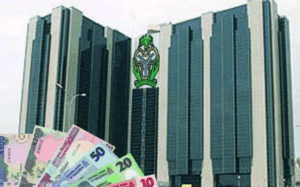Understanding the Structure of the Nigerian Financial System
Every country has a financial system that controls the growth and development of their economy. It’s important to understand this financial system especially if you are a foreign investor or you want to run a successful business in that country. Nigeria’s financial structure is much like those of many other countries, with certain local peculiarities.
The Central Bank of Nigeria (CBN) is the chief regulatory body that controls everything concerning Nigeria’s financial system including banks and other monetary institutions. Apart from CBN, other regulatory bodies of the Nigerian financial system include:
- The Federal Ministry of Finance (shortened to FMF)
- The Securities and Exchange Commission (shortened to SEC)
- The Nigerian Stock Exchange (shortened to NSE)
- The National Insurance Commission of Nigeria (shortened to NICON)
- The Nigerian Deposit Insurance Corporation (shortened to NDIC)
- The Federal Mortgage Bank of Nigeria (shortened to FMBN)
These bodies play a major role in Nigeria’s financial structure. They control specific areas, for instance, The NSE regulates the entire capital market. They also supervise all the brokers, issuing houses, and all other organs that handle securities, stocks, and so on.
Financial systems generally have four subsystems:
- State finance – the sphere of monetary relations where they form and distribute the national product, form and use the state finance to regulate the state, defend it, and satisfy its internal needs.
- Industry finance – the finance that’s meant to provide the needs of industries. The finance that comes from industries makes up a big or, sometimes, the biggest part of the national value.
- The market of finance – the system of exchange and redistribution that’s created as a result of selling and buying financial resources. Under the marketing conditions, this link connects other spheres of a financial system.
- International finance – works between states, international organizations and other bodies, which emerge based on the need for exchange and redistribution.
The financial system is usually divided into two spheres:
- Public finance or centralized finance
- Decentralized finance
The first two (1 & 2) subsystems relate to Decentralized Finance and the latter two (3 & 4) relate to Centralized or Public Finance. Such a structure of financial systems can be found in practically all states in the world including Nigeria, however, the difference is in the amount of implementation. Let’s look at the impact of the Nigerian Financial system on the entire country.
The Role And Impact Of The Nigerian Financial System Structure On The Entire Country
- Stability and Development – A strong financial structure makes a country stable but with a weak financial structure a country is unstable and vulnerable. It’s necessary to remember that the more effective and healthy the financial structure is, the more useful it is to the development of the entire country. The point is that an efficient financial system is able to make the population within a country more financially stable, to provide them with a better welfare.
- Investment Opportunities – Investment is another critical component of the country’s development. Basically, there are units in this structure that possess certain funds and have a need to spend them on goods or services, to invest these funds (these are mainly households). There are other units that require funds for the development and production (these are businesses of diverse types and the government). The task of a good and sound financial system is to balance the relations between them. It means the financial system here is called as an intermediary between the units that supply and the units in need. With its help, they get to know about each other and can conduct mutually beneficial operations. This is called symmetry between the parts of the system. The smoother the process of balancing the units is at this stage, the smoother their cooperation will be, logically.
Of course, there are no perfect mechanisms anywhere in the world, even in the most developed countries. Being one of the developing countries, Nigeria still needs improvement in many areas of economy and industry. The financial system is no exception in this situation.
Factors That Affect The Nigerian Financial System
There are many factors that affect the Nigerian financial system which needs to be tackled to foster development in Nigeria, they include:
- Corruption-fighting existing corruption plays a huge role in the development of trust and building lasting relationships.
- The inefficiency of the banking system including low rates assigned to savings.
- A constant growth of the insolvency among individuals, and so on.
Fighting these factors should be the key strategy of the Nigerian financial system development. People should have more knowledge about the positive effects of saving and investing in industrial units inside the country.
This is the task of the informal sector and this is what has been mentioned above: the balancing of the relations between those who need investments and those who can provide them. With a high-quality informational propaganda and the increased trust to the financial system, individuals will more willingly exchange funds with the state and other branches of the financial system.
